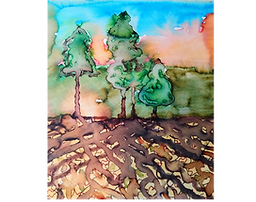Neurodiversity and Psychotherapy: A Human Approach
- Edu Hardy
- Jun 27, 2025
- 2 min read
By Edu Hardy | Therapist for Professionals and Neurodivergent Adults
In recent years, our understanding of neurodiversity has begun to shift. We are moving from a deficit-based model — one that sees neurodivergent traits as problems to fix — to a difference-based perspective that honours individual ways of experiencing the world.
As a psychotherapist, and also as a parent of a neurodivergent child, this shift is both personal and professional. My therapeutic work is grounded in the Humanistic Integrative approach, which recognises that each person is unique, worthy, and in process. It’s a model that fits naturally with the values of the Neurodiversity Movement.
Why a Different Therapeutic Lens Matters
Many neurodivergent individuals (including people with ADHD or autism) come to therapy not just because of their diagnosis, but because of years of misunderstanding, pressure to mask, and repeated relational failures in environments that don’t accommodate them.
Common societal expectations — “be responsible”, “pay attention”, “don’t be so sensitive”, “just try harder” — often result in deep internalised shame and exhaustion. This is especially true for professionals who appear to be coping on the surface, but are silently burning out inside.
In therapy, I often see clients who have spent years adapting to fit in, apologising, overperforming, or feeling like they are not enough — simply because they relate differently to time, emotion, social norms, or sensory input.
What Humanistic Integrative Therapy Offers
The Humanistic Integrative model offers something essential: a therapeutic space that is non-pathologising, relational and deeply respectful. We work not to “normalise” people, but to understand their experience, affirm their identity, and support them in creating sustainable ways of living and relating.
This means:
Slowing down the pace
Validating sensory needs and processing styles
Fostering autonomy and agency
Addressing trauma linked to chronic invalidation
Exploring identity without judgment
Supporting self-compassion in place of perfectionism
Therapy becomes not a place to fix, but a place to rest, understand and reimagine one’s way of being in the world.
Toward More Inclusive Therapeutic Spaces
As therapists, we have the responsibility to keep learning — not just techniques, but perspectives. Being informed by the Neurodiversity Paradigm means noticing how therapy itself may need to shift: in our language, our pace, our expectations, and how we define “progress”.
It also means seeing each client not as someone who needs to “fit in better”, but as someone who deserves space to flourish on their own terms.
If you are neurodivergent — or suspect you might be — and are seeking a therapeutic space that sees you as more than a diagnosis, I’d be honoured to accompany you.

Comments